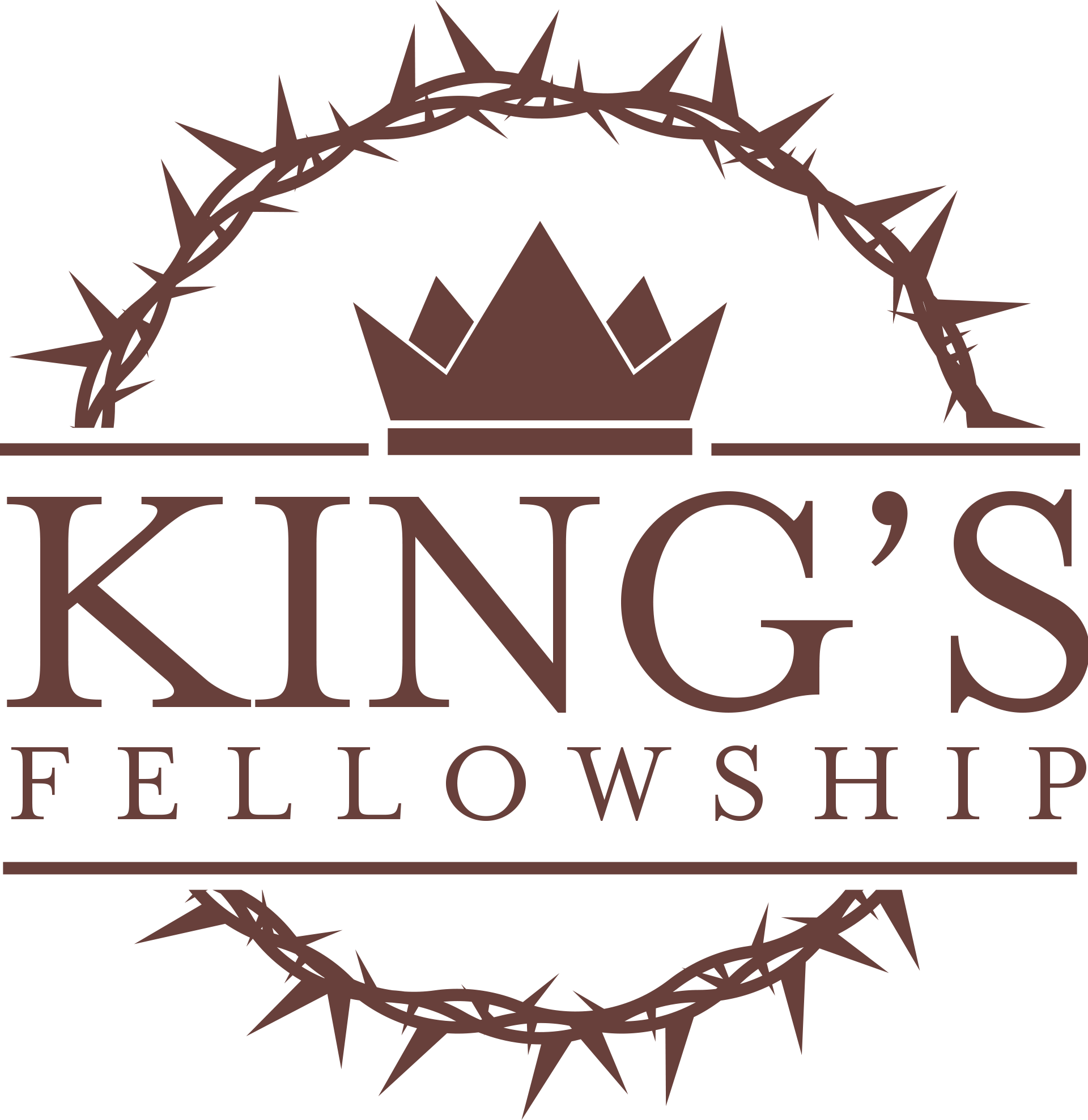
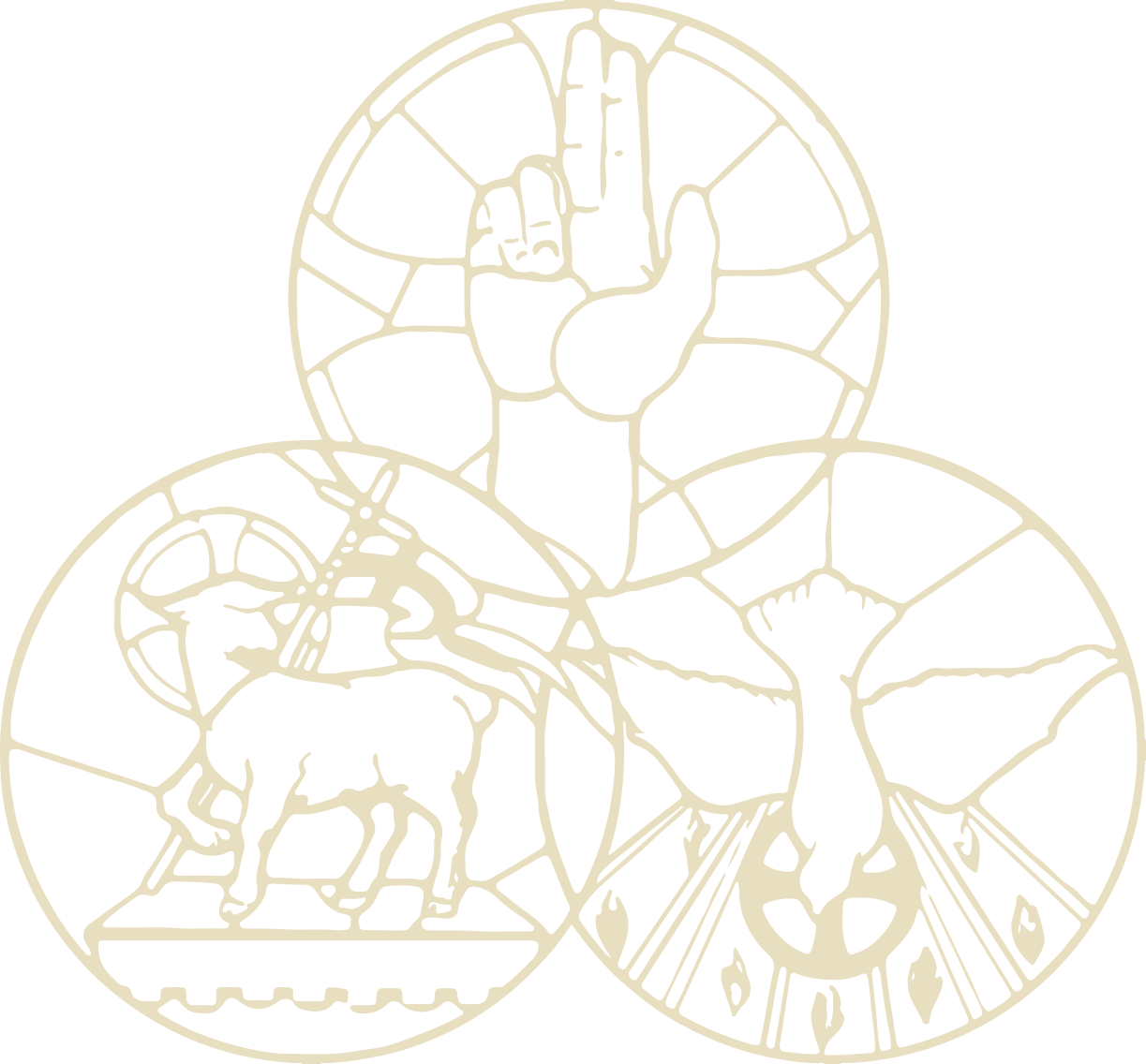
Core Christian Beliefs
If you’re seeking a church in Ada that deeply cares about theology, consider King’s Fellowship Church. At King’s Fellowship, we are committed to a deep and thorough engagement with Scripture. We believe that everything necessary for godly living and holy practice can be found in the sacred Scriptures. Both Old and New Testaments are the inspired word of God, sufficient for doctrine, reproof, correction, and for righteousness instruction. However, these flawless scriptures have flawed interpreters (i.e., you and me). So we affirm these historic creeds and definitions as the necessary boundary markers for orthodoxy within the Christian faith.
Apostles Creed
Athanasian Creed
Nicene Creed
Chalsadonian Definition
Our Distinctives
These beliefs here are what shape the ministry at King’s Fellowship Church. Good and godly brothers and sisters around the world will agree and disagree with us on the nuances of these beliefs. But these three distinctives are what makes us King’s Fellowship. We attempt to integrate these distinctive doctrines into all areas of church ministry.
Law & Gospel
King’s Fellowship is an Ada Church that aims to proclaim both Law and Gospel. The Law of God is the perfect stand for all mankind. The Law is good, beautiful, and faultless as it points us to the perfect moral standard. Thus the Law exposes the sinfulness of both saint and sinner causing them both to look outside of themselves for forgiveness and life everlasting. The Gospel (or Good News) is that the Law of God has been perfectly fulfilled in Jesus. Those who place faith in Jesus receive his spotless record. The Law says “do;” the Gospel says “done,” and our aim is simply to remind God’s people to rest in Jesus’ finished work.
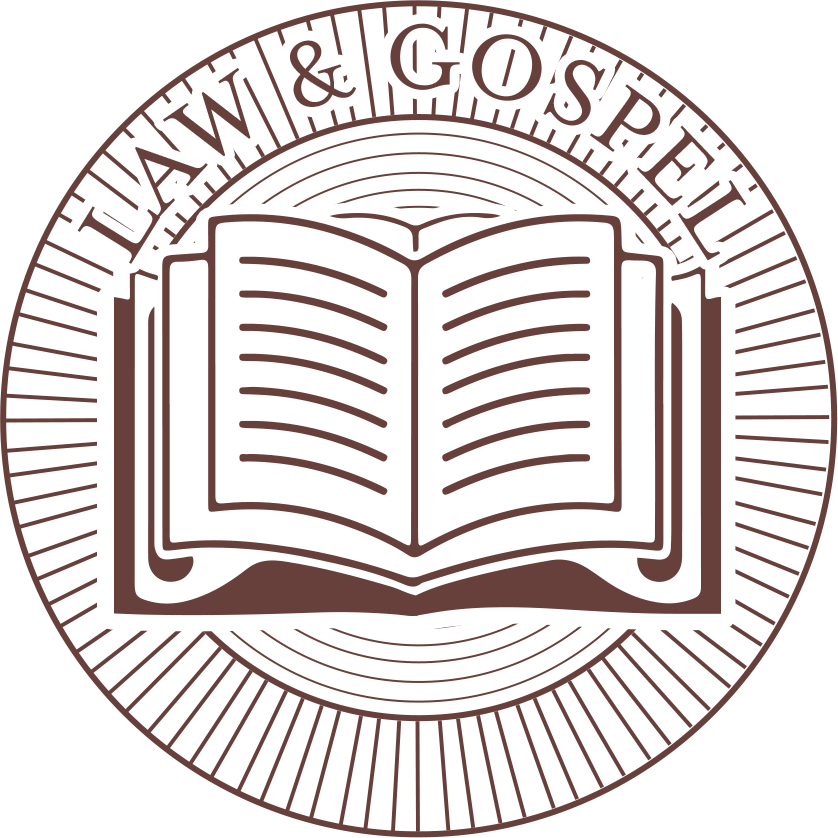
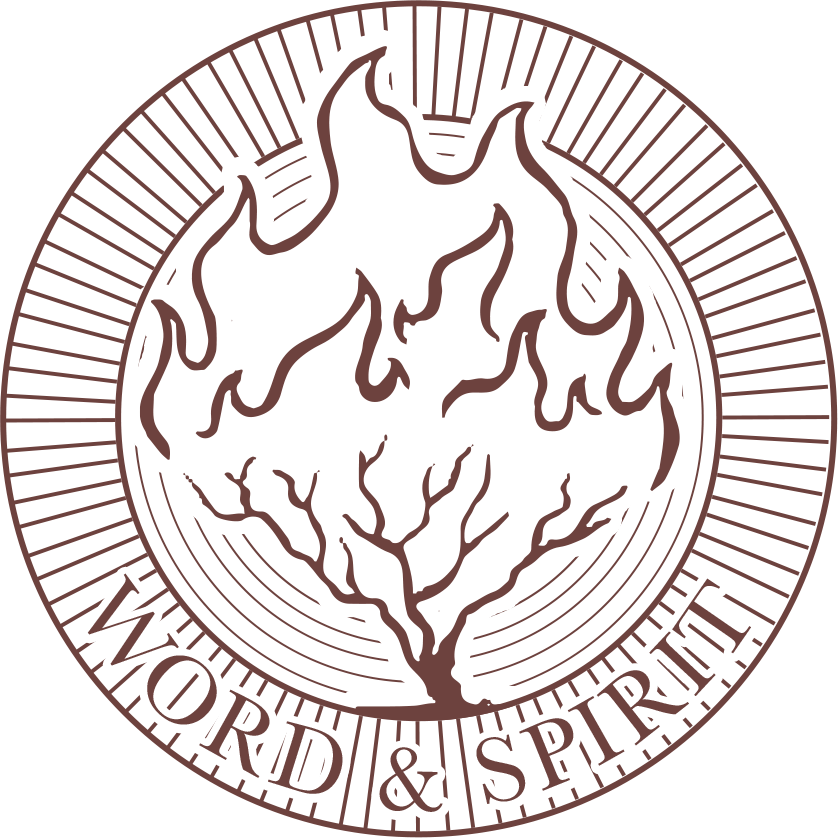
Word & Spirit
King’s Fellowship Church is wholly committed to the convergence of both Word and Spirit, not simply as a theological statement, but as a way of life and ministry. The Holy Scriptures are the sole objective, infallible standard that governs our life and practice. Therefore we hope, by God’s grace, to be empowered with every spiritual gift listed in the Holy Scripture. We are devoted to growing in our knowledge of God’s Word and the power of God’s Spirit with reverence and order. This means we make room in all our services for the mature expression of spiritual gifts in order that the people of God may be refreshed, encouraged, and built up for every good work.
Sacramental & Incarnational
At Kings Fellowship, we believe that the sacraments are a visible sign of invisible grace. We believe that God’s Spirit is uniquely at work in the sacraments, so that the risen, living Messiah is really (though not literally) present to us in them. This condescension of God, and fellowship with God, is a true mystery that is more experienced than exhaustively understood. When we say “sacramental,” we do not mean to imply that the sacraments somehow regenerate us, rather the sacraments are present to empower the believer and remind the believer to live as our Lord Jesus lived. When we say “incarnational,” we only mean to have that mind in us that was in Jesus in his incarnation. To embrace an incarnational ministry, then, involves a willingness to relinquish our own desires and interests in the service of others. We believe that God’s good gifts in the sacraments empower us to do God’s good work in incarnational living.
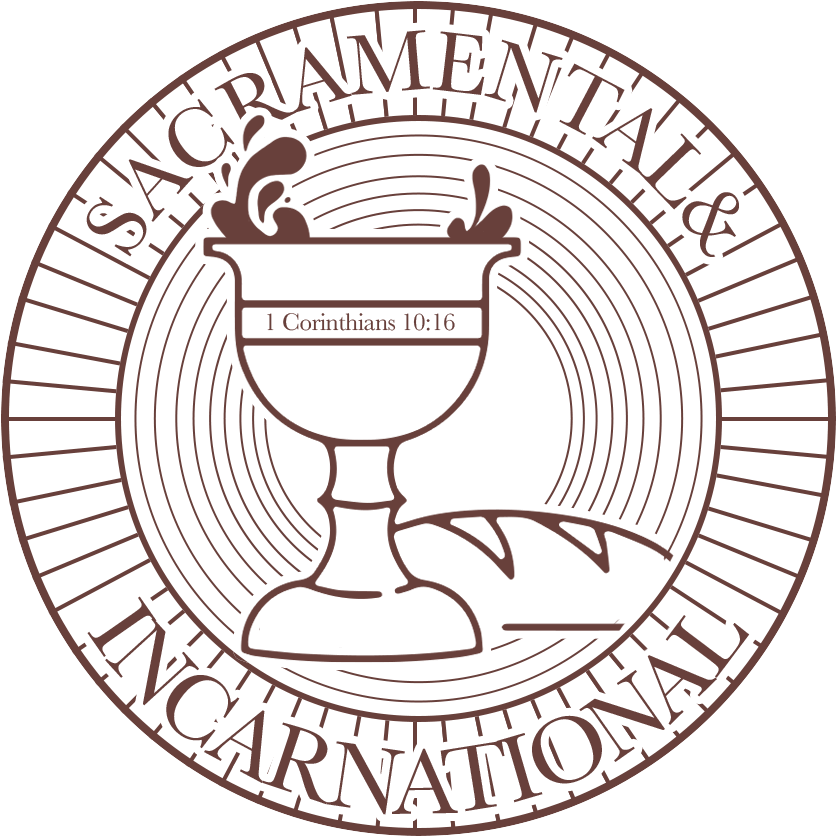
What We Believe
This is not a list of doctrines you must believe to be a member of King’s Fellowship. There will be those who join this Church who will have differing opinions and secondary doctrinal issues such as male and female roles, gifts of the Spirit, Communion, and other various secondary doctrines. However, the preaching and teaching of King’s Fellowship will align with these stated beliefs.
We believe in the Bible
We believe that God has perfectly revealed who he is and what he commands in the Bible.
We believe in Jesus
We believe that Jesus is fully God and fully man. Through his life, death, and resurrection, he did all that was necessary to make salvation possible.
We believe in the gospel
The gospel is the good news that God saves sinners through Jesus’ life, death, and resurrection.
We believe in original sin
We believe that, through Adam, sin has broken all humanity and creation, leaving the world in need of salvation.
We believe Satan exists
We believe Satan hates God’s church and is determined to crush it. Satan was defeated at the cross even as we wait for his final judgment.
We believe in baptism & communion
We believe God has given us baptism and communion to strengthen Christians’ lives and celebrate their inclusion into God’s family.
We believe in marriage
We believe the pattern for sex and marriage was established by God as he officiated Adam and Eve’s male-female union in Eden.
We believe in the image of God
We believe that all humans are equal in dignity and value, bearing the image of God from the moment of conception, regardless of ethnicity or gender.
We believe in the Trinity
We believe that God is a complex unity. There is only one true God, but he exists eternally as three persons—Father, Son, and Holy Spirit.
We believe in the Holy Spirit
We believe that the Holy Spirit is fully God. Through his ministry, he points us to Jesus and empowers our lives.
We believe in spiritual gifts
We believe that the Holy Spirit continues to give Jesus’ followers all spiritual gifts to encourage believers and save those who do not yet believe.
We believe in salvation by grace alone
We believe that salvation is by grace alone, through faith alone, in Christ alone.
We believe in the Church
We believe the Church is Jesus’ body on the earth. Her mission is to make Jesus known through preaching the gospel, caring for the poor, and serving our neighbors.
We believe in complementarianism
We believe that men and women are equals, created by God to fulfill different roles as coworkers in his kingdom.
We believe in heaven and hell
We believe that followers of Jesus will spend eternity with Jesus in his kingdom. Everyone who rejects Jesus will be punished with eternal separation from the presence of God.
We believe in Jesus’ return
We believe that Jesus will return to both restore creation and judge the living and the dead.
We Believe In The Five Solas
These five statements of the Protestant Reformation lay at the center of what distinguished the theology of Protestantism from the theology of the Roman Catholic church in the 16th century. Sola Scriptura holds that Scripture is the only inerrant, sufficient, and final authority for the church because it is God’s inspired Word. Solus Christus holds that Christ alone is the basis on which the ungodly are justified before God. Sola Fide holds that only through faith can a believer receive the redemption Christ accomplished for them. Sola Gratia holds that our salvation comes from grace alone, from beginning to end. Because of these things, the Reformers held to the final Sola, Soli Deo Gloria, that only God receives glory for our salvation.
Apostles’ Creed
I believe in God, the Father almighty,
creator of heaven and earth.
I believe in Jesus Christ, his only Son, our Lord,
who was conceived by the Holy Spirit
and born of the virgin Mary.
He suffered under Pontius Pilate,
was crucified, died, and was buried;
he descended to hell.
The third day he rose again from the dead.
He ascended to heaven
and is seated at the right hand of God the Father almighty.
From there he will come to judge the living and the dead.
I believe in the Holy Spirit,
the holy catholic* church,
the communion of saints,
the forgiveness of sins,
the resurrection of the body,
and the life everlasting. Amen.
*that is, the true Christian church of all times and all places
Important Notes
The word “catholic” in this and other creeds does not mean “Roman Catholic”. The word “catholic” merely means “universal”. Rome was not distinguished as a region of the universal church until Emperor Justinian 1st legislated the Pentarchy somewhere between 527–565 AD.
Background
This creed is called the Apostles’ Creed not because it was produced by the apostles themselves but because it contains a brief summary of their teachings. In its present form, it is dated no later than the fourth century. More than any other Christian creed, it may justly be called an ecumenical symbol of faith.
Athanasian Creed
Whoever desires to be saved should above all hold to the catholic faith. Anyone who does not keep it whole and unbroken will doubtless perish eternally. Now this is the catholic faith:
That we worship one God in trinity and the trinity in unity, neither blending their persons nor dividing their essence. For the person of the Father is a distinct person, the person of the Son is another, and that of the Holy Spirit still another. But the divinity of the Father, Son, and Holy Spirit is one, their glory equal, their majesty coeternal.
What quality the Father has, the Son has, and the Holy Spirit has. The Father is uncreated, the Son is uncreated, the Holy Spirit is uncreated. The Father is immeasurable, the Son is immeasurable, the Holy Spirit is immeasurable. The Father is eternal, the Son is eternal, the Holy Spirit is eternal. And yet there are not three eternal beings; there is but one eternal being. So too there are not three uncreated or immeasurable beings; there is but one uncreated and immeasurable being.
Similarly, the Father is almighty, the Son is almighty, the Holy Spirit is almighty. Yet there are not three almighty beings; there is but one almighty being. Thus the Father is God, the Son is God, the Holy Spirit is God. Yet there are not three gods; there is but one God. Thus the Father is Lord, the Son is Lord, the Holy Spirit is Lord. Yet there are not three lords; there is but one Lord.
Just as Christian truth compels us to confess each person individually as both God and Lord, so catholic religion forbids us to say that there are three gods or lords. The Father was neither made nor created nor begotten from anyone. The Son was neither made nor created; he was begotten from the Father alone. The Holy Spirit was neither made nor created nor begotten; he proceeds from the Father and the Son. Accordingly there is one Father, not three fathers; there is one Son, not three sons; there is one Holy Spirit, not three holy spirits. Nothing in this trinity is before or after, nothing is greater or smaller; in their entirety the three persons are coeternal and coequal with each other. So in everything, as was said earlier, we must worship their trinity in their unity and their unity in their trinity. Anyone then who desires to be saved should think thus about the trinity. But it is necessary for eternal salvation that one also believe in the incarnation of our Lord Jesus Christ faithfully.
Now this is the true faith: That we believe and confess that our Lord Jesus Christ, God’s Son, is both God and human, equally. He is God from the essence of the Father, begotten before time; and he is human from the essence of his mother, born in time; completely God, completely human, with a rational soul and human flesh; equal to the Father as regards divinity, less than the Father as regards humanity. Although he is God and human, yet Christ is not two, but one. He is one, however, not by his divinity being turned into flesh, but by God’s taking humanity to himself. He is one, certainly not by the blending of his essence, but by the unity of his person. For just as one human is both rational soul and flesh, so too the one Christ is both God and human. He suffered for our salvation; he descended to hell; he arose from the dead; he ascended to heaven; he is seated at the Father’s right hand; from there he will come to judge the living and the dead. At his coming all people will arise bodily and give an accounting of their own deeds. Those who have done good will enter eternal life, and those who have done evil will enter eternal fire.
This is the catholic faith: one cannot be saved without believing it firmly and faithfully.
Important Notes
The word “catholic” in this and other creeds does not mean “Roman Catholic”. The word “catholic” merely means “universal”. Rome was not distinguished as a region of the universal church until Emperor Justinian 1st legislated the Pentarchy somewhere between 527–565 AD.
Also, this creed plainly states “One cannot be saved without believing it firmly and faithfully.” This creed is not stating that new believers and or children are damned if they do not know the creed. It is important to remember that this creed was written in response to early church heresy. The creed is not saying “If you don’t have this memorized you can’t be saved.” Rather it is saying “If you deny anything in this creed, you are worshiping a different God than the God clearly described in Holy Scripture”.
Background
This creed is named after Athanasius (A.D. 293-373), the champion of orthodoxy against Arian attacks on the doctrine of the Trinity. Although Athanasius did not write this creed and it is improperly named after him, the name persists because until the seventeenth century, it was commonly ascribed to him. It is not from Greek (Eastern), but from Latin (Western) origin, and is not recognized by the Eastern Orthodox Church today. Apart from the opening and closing sentences, this creed consists of two parts, the first setting forth the orthodox doctrine of the trinity, and the second dealing chiefly with the incarnation and the two-natures doctrine.
Nicene Creed
We believe in one God, the Father, the Almighty, maker of heaven and earth, of all things seen and unseen.
We believe in one Lord, Jesus Christ, the only Son of God, eternally begotten of the Father, God from God, Light from Light, true God from true God, begotten, not made; of one Being with the Father. Through him all things were made. For us men and for our salvation he came down from heaven; by the power of the Holy Spirit he became incarnate from the virgin Mary and was made human. He was crucified for us under Pontius Pilate; he suffered death and was buried. On the third day he rose again in accordance with the Scriptures. He ascended into heaven and is seated at the right hand of the Father. He will come again in glory to judge the living and the dead, and His kingdom will have no end.
We believe in the Holy Spirit, the Lord, the giver of life, who proceeds from the Father and the Son, and with the Father and the Son is worshiped and glorified. He spoke through the prophets.
We believe in one holy catholic and apostolic Church. We acknowledge one baptism for the forgiveness of sins. We look forward to the resurrection of the dead, and to life in the world to come. Amen.
Important Notes
The word “catholic” in this and other creeds does not mean “Roman Catholic”. The word “catholic” merely means “universal”. Rome was not distinguished as a region of the universal church until Emperor Justinian 1st legislated the Pentarchy somewhere between 527–565 AD.
Background
The Nicene Creed, also called the Nicaeno-Constantinopolitan Creed, is a statement of the orthodox faith of the early Christian church in opposition to certain heresies, especially Arianism. These heresies, which disturbed the church during the fourth century, concerned the doctrine of the Trinity and of the person of Jesus. Both the Greek (Eastern) and the Latin (Western) church held this creed in honor. In its present form, this creed goes back partially to the Council of Nicea (A.D. 325) with additions by the Council of Constantinople (A.D. 381). It was accepted in its present form at the Council of Chalcedon in 451, but the “filioque” phrase was not added until 589.
Chalsadonian Definition
Therefore, following the holy fathers, we all with one accord teach men to acknowledge one and the same Son, our Lord Jesus Christ, at once complete in Godhead and complete in manhood, truly God and truly man, consisting also of a reasonable soul and body; of one substance with the Father as regards his Godhead, and at the same time of one substance with us as regards his manhood; like us in all respects, apart from sin; as regards his Godhead, begotten of the Father before the ages, but yet as regards his manhood begotten, for us men and for our salvation, of Mary the Virgin, the God-bearer; one and the same Christ, Son, Lord, Only-begotten, recognized in two natures, without confusion, without change, without division, without separation; the distinction of natures being in no way annulled by the union, but rather the characteristics of each nature being preserved and coming together to form one person and subsistence, not as parted or separated into two persons, but one and the same Son and Only-begotten God the Word, Lord Jesus Christ; even as the prophets from earliest times spoke of him, and our Lord Jesus Christ himself taught us, and the creed of the fathers has handed down to us.
Background
The Chalcedonian Definition was adopted at the Council of Chalcedon in 451AD in Asia Minor as a response to certain heretical views concerning the nature of Jesus. This Council of Chalcedon is the fourth of the seven ecumenical councils accepted by Eastern Orthodox, Catholic, and many Protestant Christian churches.
The Chalcedonian Definition was written amid controversy between the Western and Eastern churches over the meaning of the incarnation. This adopted definition specifically maintained the two distinct natures of Jesus (divine and human) against the teaching of Eutyches — that Jesus had only one nature, a mixture of human and divine. Eutychianism is also known as monophysitism from monos (single) and physis (nature), which confuses both Jesus’ true humanity and his true deity.
To hear applicable examples of our beliefs as communicated through weekly Bible teaching at our Ada Church, check out the sermons page: https://kingsfellowshipchurch.com/sermons/
If you’re interested in reading the Bible for yourself, check out this free online Bible software:
King’s Fellowship Church
(580) 967-1629
